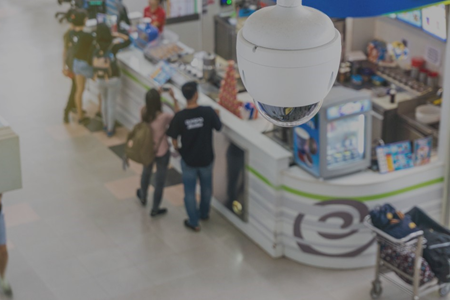Christmas Chaos for Retailers?
November to January has always been a key trading period for retailers, a point illuminated by Black Friday, a phenomenon that began in the US. There are contradictory stories for the origins of the term, some say it was born to describe the heavy traffic that originated after Thanksgiving, when Americans from all parts of the country returned home after spending the holidays with their family. Others refer to it as a day in which the accounting of businesses went from red to black, indicating the impact of the run up to Christmas upon profitability. However, what cannot be ignored, irrespective of how the term Black Friday came about, is the importance of this period for retailers.
Retailer Challenges in 2020
Roll-on 2020. Directing retail operations throughout Christmas and then into the January sales are no doubt going to be an interesting experience to say the least. Particularly when considering the impact of Covid, irrespective of the recent vaccine announcement, which most experts think will not be widely available until the middle of 2021. Early indicators also suggest that the 4 week lockdown will significantly compress trading. This has already been observed with the press reporting large scale issues with queues at retailers that were due to close as a result of the latest government imposed lockdown, which has now come into force in England (at the time of writing).
As for essential retailers, trade that cannot be serviced by those forced to close by lockdown will overflow and spill into them, placing increasing demand upon their infrastructure, particularly with regards to managing social distancing. Compound these factors with the winter weather and it’s likely not to be a stellar customer experience for shoppers during the coming months.
Flashpoint Potential
The potential for related flashpoints also looms large. Remember the Cabbage Patch Doll riots on the run up to Christmas 1983 and more recently the Black Friday punch-ups in UK supermarkets back in 2013 and 2014. The UK government, through its actions, will now compress 7 weeks of the busiest trading period, from now until Christmas, into only 3. Worse still, online deliveries could begin to fail from mid-December onwards so crowds will descend upon stores like a flock of hungry seagulls. Furthermore, there is the hustle and bustle of post-Christmas sales.
These factors hold significant CSR implications for retailers. It highlights the need for them to act now and take urgent steps, so as to safeguard their staff and customers. Additionally, retailers must be aware of recent data that found that retailers that invest in digital tools which support their store associates are actually experiencing a higher sales growth percentage of 55% in 2020 (source).
You might want to take a quick look at this: https://www.youtube.com/watch?v=et30BPyS_Ms
Ocucon appeared on BBC Click after installing the Occupi traffic light system in Aldi UK and Ireland stores, with large brands, like IKEA, increasingly migrating to it.
Automated Occupancy Management
Recent developments of OCCUPi, Ocucon’s occupancy management system, include the introduction of Mask Detection and an API. OCCUPi API facilitates the extraction of occupancy data by retailers in real time on a store-by-store basis. Integration of this feed allows retailers to indicate online whether stores are full or have capacity, and if they have capacity for customers how many they can accommodate before reaching full capacity. Through providing this data, it enhances customer experience and improves the competitive position of those that adopt this technology. This is because OCCUPi API enables customers to observe live occupancy levels in real time at their local store before committing to a journey, so that they can avoid playing Russian roulette with the weather and queues.
Occupi provides unrivalled accuracy of up to 99.7%. It allows retailers to safely maximise customer numbers in store whilst maintaining occupancy levels in line with government regulations. This has led to a lift in sales for all adopters of this technology to date, along with improvements in productivity through proven use cases.
The OCCUPi occupancy management system also provides an ROI within 30-days.
If you wish to discuss the Occupi platform in greater detail get in touch. It may just hold the key that unlocks a safe and enjoyable shopping environment for your customers, along with helping you to retain your competitive positioning through what is undoubtedly going to be an extremely difficult and critical trading period for all retailers.





